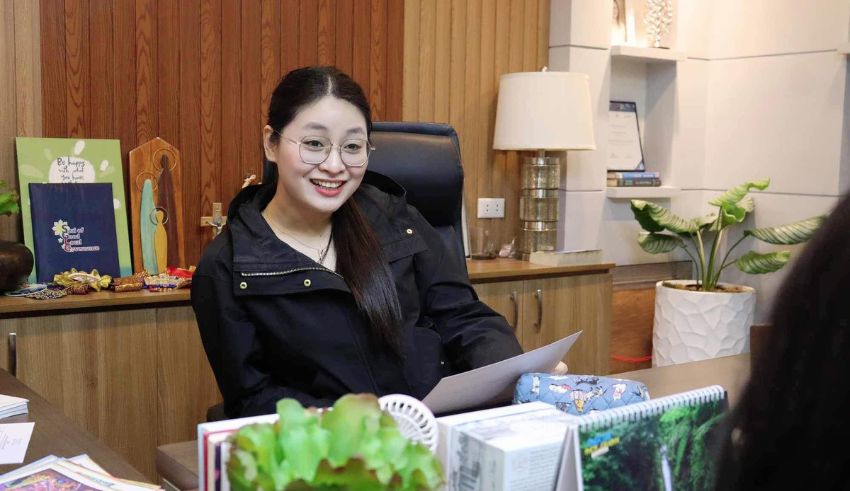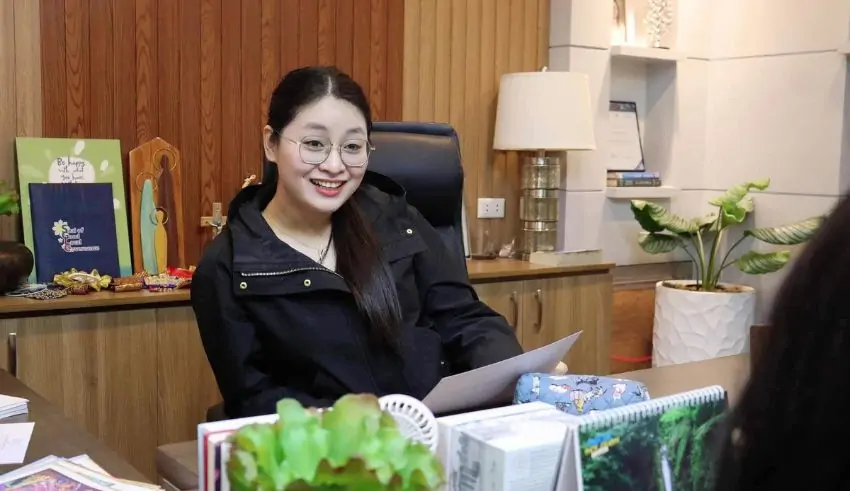

(C) Mayor Alice Guo
Key player in a continuing investigation, Alice Guo finds herself at a crossroads in a high-stakes judicial drama. Her state witness status is under consideration by the authorities only if she names someone much more important, a “bigger fish.” Not only for Alice but also for the whole legal and investigative process, this choice has significant consequences and offers a range of difficult problems. The consequences of her decision go beyond the specific case as the pressure increases, therefore affecting public confidence in the legal system and perhaps compromising its integrity.
Mid-level executive Alice Guo of a big company has been connected to a convoluted network of financial crimes. Her insider knowledge seems to be the secret to revealing the minute elements of the claimed unlawful behavior. Investigators think she has vital information that might destroy the whole scheme. Her position inside the company gave her access to private information, hence her testimony might be quite helpful in helping to fit the bigger picture of corruption and misbehavior. But the authorities require a domino effect leading to the mastermind behind it all, not only her testimony. This makes Alice’s importance in the overall scheme of the research very crucial.
Alice might get witness protection and immunity from prosecution if she agrees to cooperate totally. This would guarantee her protection and protect her from reprisal from her past friends. But it also means changing her life, bidding farewell to what she is familiar with, and inhabiting a new persona. A radical step, the witness protection program entails relocation and a whole new way of life adoption. This metamorphosis affects her social contacts, job possibilities, and general sense of identity in addition to being a practical one. It is a deep personal upheaval. Alice’s choice to go into witness protection is about more than just physical safety; it’s also about adjusting to a new reality and reconciling with the death of her former existence.
The officials insist: they want the “bigger fish.” Her testimony by itself won’t be sufficient; she also has to expose the criminal network’s orchestrator. But who is this ghostly manager? Is a shady billionaire, a corrupt politician, or someone even more surprising? Finding and accusing this person comes with great risk and uncertainty. The “bigger fish” poses a more serious threat to society, hence bringing them to justice is considered as a top goal. But spotting and offering proof against such a strong force calls for Alice to negotiate a maze of possible hazards and obstacles. The stakes are great, and her testimony might have enormous effects for her as well as for the more general fight against corruption.
Alice wrestles in her conscience. Does she put justice before personal survival? Can she turn on someone she once relied upon? Her choice has great weight, ethically as much as legally. Her collaboration might help to destroy a dishonest network, therefore benefiting society at large. But it also involves living with the personal fallout from her acts, confronting any criticism, and separating from her prior connections. The personal relationships and loyalties involved exacerbate the moral conundrum, hence her choice is a very personal and ethical one. Alice has to consider her own safety and the emotional toll of betrayal against her obligation to the public.
Legal and Moral Consequences
Approaching the “bigger fish” and granting Alice state witness status have more ethical and legal ramifications. Although state witnesses are a great weapon in the legal system, they have to be weighed against issues of justice and fairness. Alice’s testimony has to be reliable and backed by confirming data, hence the authorities have to guarantee that. Furthermore, the necessity of responsibility and the possible effect on public confidence in the legal system have to be considered against the choice to provide immunity and protection. The ethical issues also relate to Alice’s treatment as a witness, thereby guaranteeing her rights and preventing undue pressure or coercion into cooperating. Maintaining a balance between obtaining important testimony and preserving the ideas of justice and fairness determines the integrity of the legal system.
Societal Effects
The result of Alice’s choice and the more general research has major social ramifications. Correcting the “bigger fish” could have a significant influence on public opinions of legal system efficacy and corruption. It would show a dedication to maintaining the rule of law and discourage next illegal behaviors. Nonetheless, the procedure must also be open and fair to guarantee that the hunt of higher-level offenders does not undermine due process or fairness. Beyond the specific case, the social impact shapes more general debates concerning responsibility, morality, and the function of the judicial system in tackling intricate criminal networks. The capacity of the legal system to manage such situations with integrity and openness determines public faith in it.
Difficulties in Pursuing High-Level Corruptions
prosecuting high level corruption has many difficulties. Often with great wealth and influence, the people engaged can utilize them to hide from prosecution. It is imperative to guarantee the credibility and safety of important witnesses such as Alice, but it also calls for significant logistical and legal assistance. The authorities have to negotiate these difficulties carefully, weighing the rights and safety of witnesses against the need of efficient prosecution.
The Function of Whistleblowers
Finding misbehavior and corruption depends much on whistleblowers. Alice’s possible collaboration emphasizes the need of honoring and helping those who come forward with important information. Encouragement of others to expose misbehavior without regard for reprisal depends on strong whistleblower protections. This case emphasizes the importance of strong legal structures and support networks to safeguard whistleblowers and guarantee their worth and appreciation of their efforts.
Future Examples
The outcome of Alice’s case will establish a standard for handling like circumstances going forward. It will affect the tactics and policies law enforcement and prosecutors apply to handle intricate criminal networks. The moral and legal ideas used in this case will guide next decisions and help to define the general scene of justice and responsibility.
The stakes climb as Alice Guo muses on her future. The “bigger fish” stays buried in the dark; the state’s offer teeters on the brink. Her life won’t be the same whatever she decides. Her choice is a microcosm of the more general difficulties the legal system has in guaranteeing justice and handling intricate crime networks. The outcome of this case will not only define Alice’s future but also provide a precedent for handling like circumstances going forward. This is a turning point in the continuous fight for justice and responsibility since the interaction of legal, ethical, and social elements determines this. The result will affect public confidence in the legal system and the more general fight against corruption, therefore stressing the need of integrity, openness, and fairness in the search of justice.
Cricket fans, rejoice! The Olympic Council of Asia (OCA) has confirmed that cricket will be part of the 2026 Asian…
With economic growth fueled by families, Asia's stronghold will soon be on Bloomberg's list of Asia's richest families in the…
Malaysia has reached a historic milestone by ranking number one in the global Open Data Inventory (Odin) 2024/25, thanks to…
For Nogizaka46 fans, this May is going to offer a great opportunity to watch as their 6th Generation Members are…
The dual relationship between Malaysia and the Myanmar junta and National Unity Government (NUG) establishes a vital shift in how…
BLACKPINK's Lisa Declines to Perform at Miss Universe 2025 BLACKPINK's Lisa, who recently stole the limelight at the 2025 Coachella…
This website uses cookies.
Read More